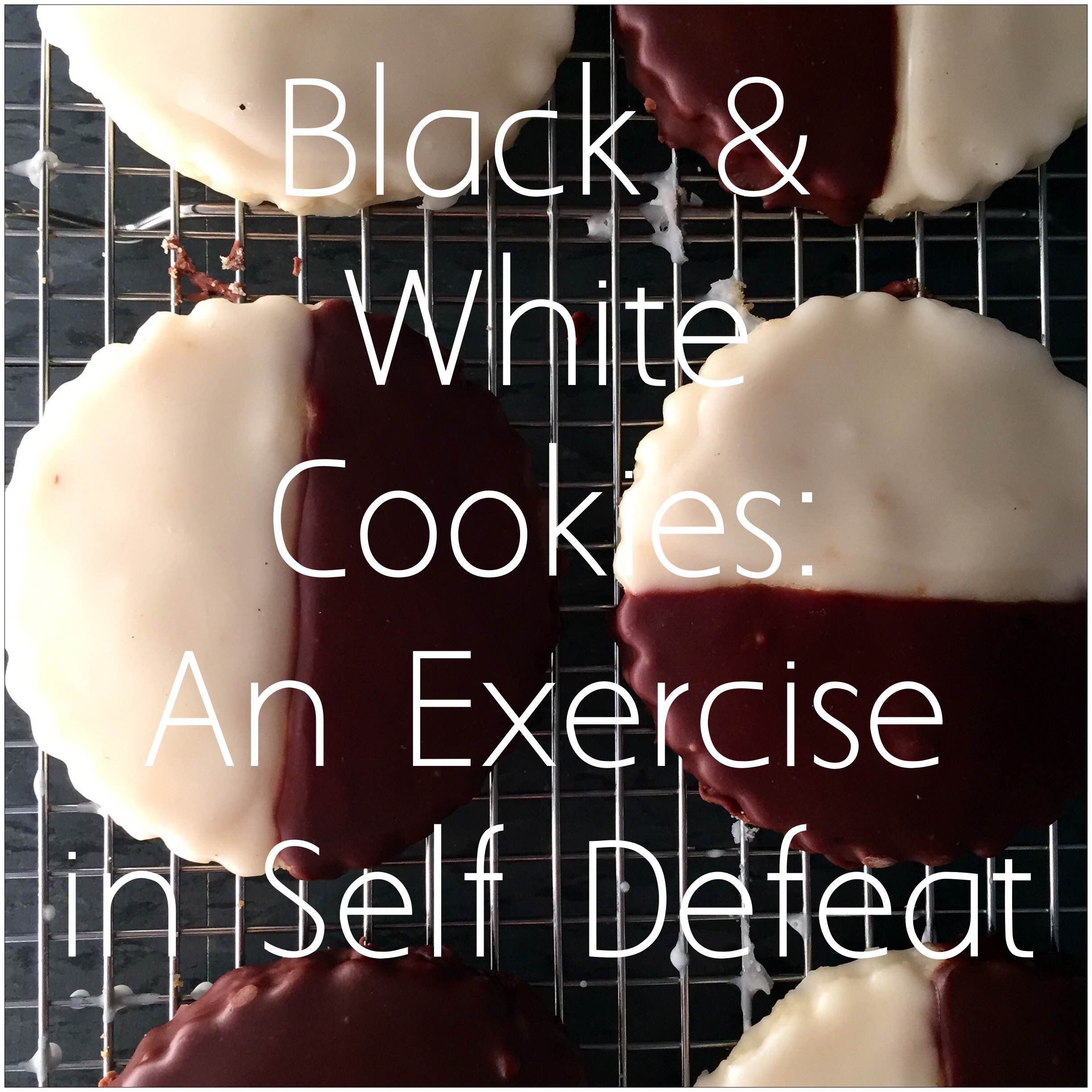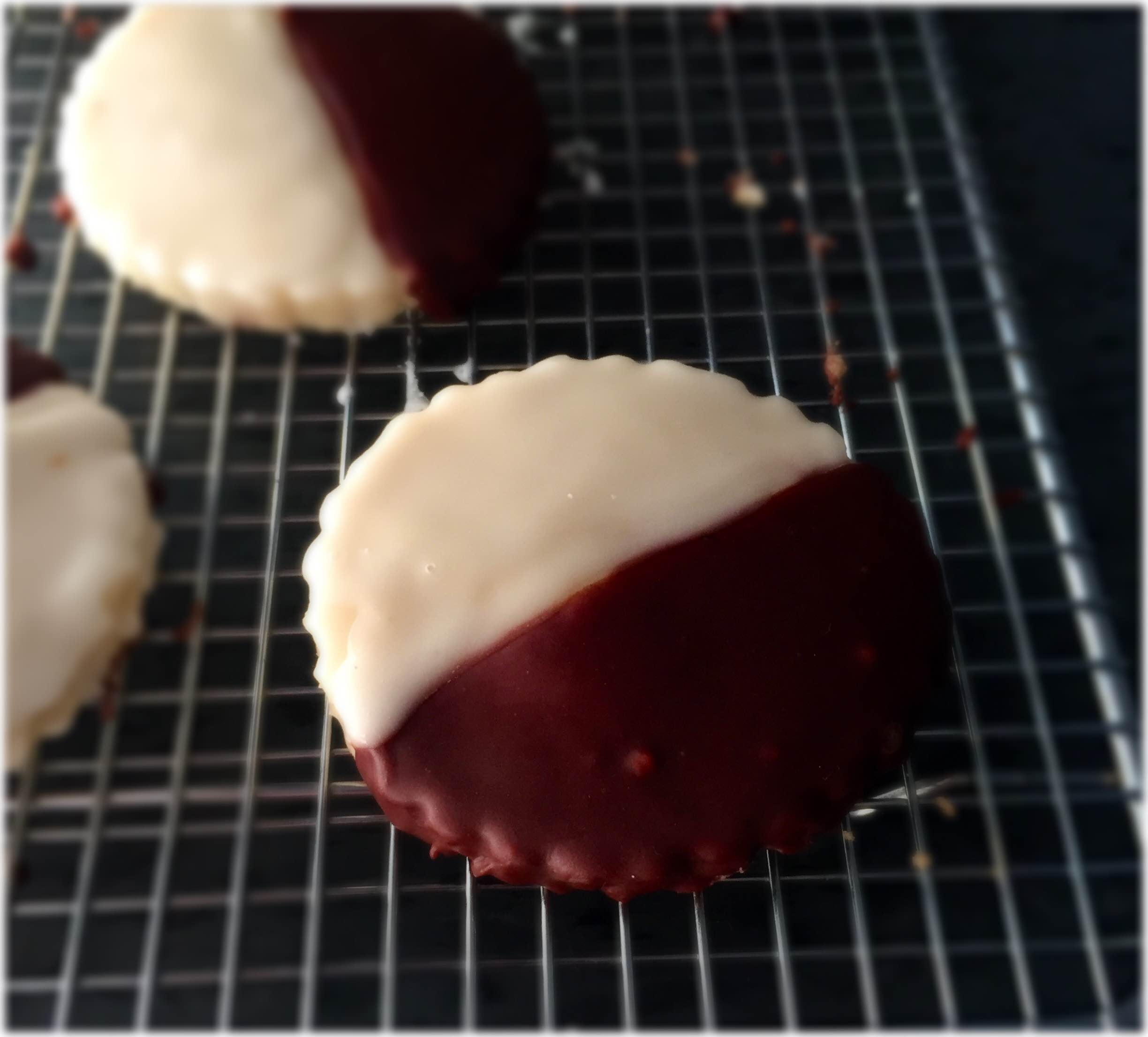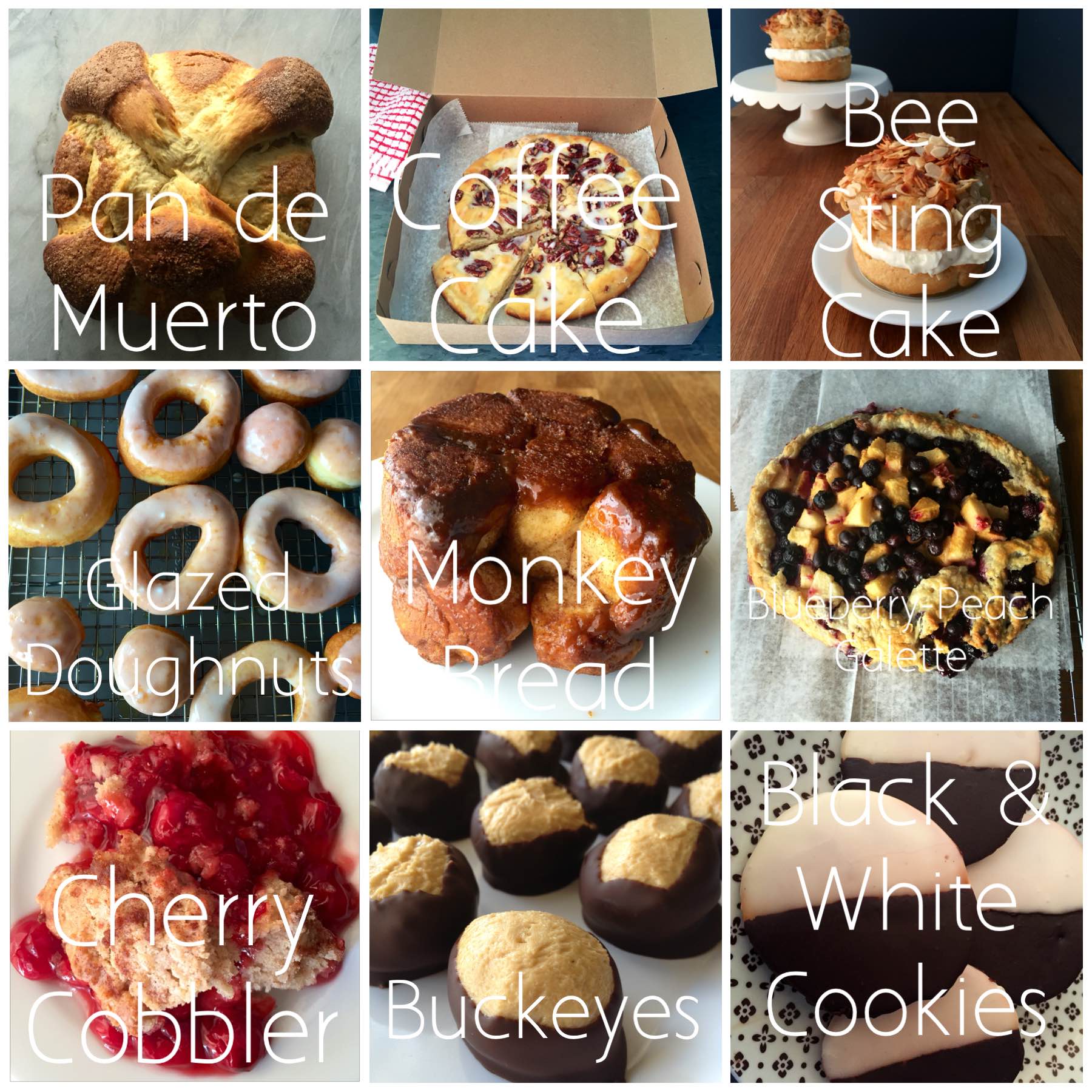
If you’ve never had a black and white cookie, they’re not really cookies at all, nor are they black and white. They are not crunchy and crumbly the way you expect cookies to be, rather they are soft and supple cakes hidden beneath a thin layer of half vanilla and half chocolate fondant (hardened icing). They’re a New York City staple; you can find them in just about every deli and bodega in all five boroughs. I think. I’ve never spent enough time in Staten Island to make such a definitive determination.
Black and white cookies are not hard to make — the method is very simple: make cake batter, make icing, bake the cakes, let them cool, then frost. But if you want them to be perfect, look to the cookie for a challenge.
The trouble with the black and white cookie is making it a perfect circle. My first few cookies were fine — they were circular, but there were, indubitably, imperfections. As the old adage goes: practice makes perfect. But with this harmonious cookie, practice for perfection can be quite debilitating. I will admit to being lugubrious over the first batch that looked pretty awesome next to my second batch. In fact, my disappointment forced me (promptly) to feed the second batch to the garbage. I didn’t get over it and kept trying, striving for straight lines and flawless spheres. Impossible. With the last batch, I gave up on insisting they form perfect circles in the oven and cheated: I used a fluted biscuit cutter to shave off my shortcomings. Aesthetically pleasing, indeed. But I still feel like I failed.
In the TED Talk, Your Brain on Improv, neurosurgeon Charles Limb discusses what happens in the brain when master musicians improvise (flawlessly, I might add). To be good at improvising, part of their brain shuts down so they’re more willing to make mistakes in order to generate creative impulses. It’s a fascinating finding. I would imagine it’s very liberating not to care about missteps. I do not have the brain of a master musician, and, generally, baking isn’t a craft you can be too creative with because recipes are bound by science. However, the act of improvising is something I use in the kitchen quite a bit. I’ve practiced and gained familiarity with different methods and ingredients so I can mindlessly mix it all together and compose confections of superior quality — yet I’m still afraid to make mistakes. What I forget is that nothing is perfect from the start and I have to willfully shut down that part of my brain that’s afraid to make mistakes. It’s part of how we grow and learn to get better rather than perfect — even in the kitchen. Now I have the black and white cookie with fluted edges to remind me that it’s OK to make mistakes and there’s always a metaphorical biscuit cutter to smooth out my blunders. For good measure, I will expose some of my biggest kitchen disasters. Here’s my gallery of growth or confections gone… meh.
